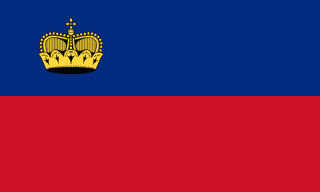

Employer of Record Guide in South Korea
Navigating the hiring landscape in South Korea can be complex, but with the right insights, you can streamline your process. Discover how to compliantly hire top talent and manage your workforce effectively in one of Asia's most dynamic tech markets.
Capital City
Currency
Languages
Population size
Services available in this country:

Key stats and facts
South Korea's thriving economy offers incredible opportunities to tap into world-class tech talent, from AI specialists to cybersecurity experts. Understanding the market fundamentals—from Seoul's innovation hubs to competitive tax structures—sets the foundation for successful global expansion.
Major economic hubs
Skills in demand
Currency
Language
GDP per Capita
Standard Tax Rate
Your EOR guide in South Korea
Getting payroll, benefits, and compliance right in South Korea requires navigating unique local requirements and cultural expectations. This comprehensive guide breaks down everything from minimum wage regulations to complex social insurance contributions, so you can hire with confidence.
Minimum Wage
South Korea's minimum wage is set nationally and applies to all workers regardless of industry or region.
- Current Rate: ₩9,860 per hour (approximately $7.40 USD)
- Monthly Equivalent: ₩2,060,740 for full-time workers (209 hours/month)
- Effective Date: January 1, 2024
- Annual Review: The Minimum Wage Council reviews rates annually, typically announcing changes in July for the following year
Note: The minimum wage applies to all employees, including part-time workers, interns, and foreign nationals.
Payroll Cycle
- Monthly: Most common practice, typically paid on the 25th of each month
- Bi-weekly: Less common but legally permitted
- Payment Method: Direct bank transfer is standard; cash payments are discouraged
Individual Income Tax
South Korea operates a progressive tax system with rates ranging from 6% to 45%.
| Annual Income (KRW) | Tax Rate |
|---|---|
| Up to ₩14,000,000 | 6% |
| ₩14,000,001 to ₩50,000,000 | 15% |
| ₩50,000,001 to ₩88,000,000 | 24% |
| ₩88,000,001 to ₩150,000,000 | 35% |
| ₩150,000,001 to ₩300,000,000 | 38% |
| ₩300,000,001 to ₩500,000,000 | 40% |
| ₩500,000,001 to ₩1,000,000,000 | 42% |
| Over ₩1,000,000,000 | 45% |
Tax Residency Criteria
Individuals are considered Korean tax residents if they:
- Maintain a domicile in Korea, or
- Have a place of residence in Korea for one year or more
- Tax residents pay Korean income tax on worldwide income
Employer Payroll Contributions
Employers must contribute to four major social insurance programmes in addition to the employee's gross salary.
| Insurance Type | Employer Rate | Employee Rate | Total Rate |
|---|---|---|---|
| National Pension | 4.5% | 4.5% | 9.0% |
| Health Insurance | ~3.43% | ~3.43% | ~6.86% |
| Long-term Care | ~0.41% | ~0.41% | ~0.82% |
| Employment Insurance | 0.25%-0.85% | 0.8% | 1.05%-1.65% |
| Workers' Compensation | 0.7%-34% | 0% | 0.7%-34% |
Total Employer Cost: Approximately 9-12% of gross salary (varies by industry risk classification)
Note: Health insurance and long-term care rates are adjusted annually. Workers' compensation rates vary significantly by industry risk level.
Working Hours
- Standard Work Week: 40 hours (8 hours per day, 5 days per week)
- Maximum Weekly Hours: 52 hours including overtime (40 regular + 12 overtime maximum)
- Daily Limits: 8 hours regular, up to 12 hours with overtime
- Rest Periods: 30 minutes for 4-8 hour shifts, 1 hour for shifts over 8 hours
Overtime Pay
- Rate: 150% of regular hourly wage for overtime hours
- Night Work Premium: Additional 50% for work between 10 PM and 6 AM
- Holiday Work Premium: 150% for work on statutory holidays
- Weekend Work: Saturday work counts as overtime; Sunday work requires 150% premium
Bonus Payments
While not legally mandated, bonuses are culturally expected and commonly provided:
- Annual Bonus: Typically equivalent to 1-4 months' salary
- Performance Bonuses: Based on individual and company performance
- Holiday Bonuses: Often provided during Lunar New Year and Chuseok
Full-Time vs. Part-Time
- Full-time: 40 hours per week with full benefits
- Part-time: Less than 30 hours per week or less than 4 days per week
- Fixed-term Contracts: Maximum 2 years, after which conversion to permanent status may be required
Annual Leave
- Initial Entitlement: 15 days after one year of employment
- Additional Days: +1 day for every 2 years of service (maximum 25 days)
- Unused Leave: Must be compensated if not taken within 2 years
- Minimum Usage: Employees must use at least 10 days annually
Sick Leave
- Paid Sick Leave: Not mandated by law, but many employers provide 3-7 days
- Medical Leave: Unpaid leave available for serious illness with medical certification
- Industrial Accident Leave: Fully compensated through workers' compensation insurance
Maternity Leave
- Duration: 90 days (45 days before birth, 45 days after)
- Payment:
- First 60 days: Employer pays (up to ₩2,000,000/month)
- Remaining 30 days: Government pays through employment insurance
- Job Protection: Position guaranteed upon return
Paternity Leave
- Duration: 10 days within 90 days of child's birth
- Payment: First 5 days paid by employer, remaining 5 days by government
- Additional Leave: Up to 1 year of unpaid parental leave available
Parental Leave
- Duration: Up to 1 year per parent (can be split between parents)
- Payment: Government provides monthly allowance through employment insurance
- Eligibility: Must have worked 180 days in the year before leave
- Job Protection: Same or equivalent position guaranteed
Family Care Leave
- Duration: Up to 90 days per year for caring for family members
- Payment: Unpaid, but may receive government support in certain cases
- Eligibility: For care of spouse, parents, children, or grandparents
Summary
| Leave Type | Duration | Paid? | Funding Source |
|---|---|---|---|
| Annual Leave | 15-25 days/year | Yes | Employer |
| Maternity Leave | 90 days | Partially | Employer + Government |
| Paternity Leave | 10 days | Partially | Employer + Government |
| Parental Leave | Up to 1 year | Partially | Government |
| Family Care Leave | Up to 90 days/year | No | N/A |
Termination Types
Dismissal for Cause:
- Requires "justifiable reasons" under the Labour Standards Act
- Must follow progressive discipline procedures
- Common grounds include misconduct, poor performance, or economic necessity
Dismissal Without Cause:
- Requires 30 days' advance notice or payment in lieu
- Must demonstrate legitimate business reasons
- Subject to strict procedural requirements
Notice Period Requirements
| Length of Employment | Notice Period |
|---|---|
| 3 months to 1 year | 30 days |
| 1 year or more | 30 days + severance pay |
Severance Pay
Retirement Allowance System:
- Required for employees with 1+ years of continuous service
- Minimum: 30 days' average wage per year of service
- Calculated based on average wage over the last 3 months
- Must be paid within 14 days of termination
Example Calculation:
- Employee with 3 years of service earning ₩3,000,000/month
- Severance = ₩3,000,000 × 3 years = ₩9,000,000
Mass Layoffs
For layoffs affecting 30+ employees within 30 days:
- 50 days' advance notice to employees and labour office
- Consultation with employee representatives required
- Must demonstrate urgent business necessity
Wrongful Dismissal Protection
- Employees can challenge dismissals through labour dispute procedures
- Remedies include reinstatement and back pay
- Discrimination-based dismissals are strictly prohibited
Final Pay Requirements
- All outstanding wages and benefits must be paid within 14 days
- Includes unused annual leave compensation
- Retirement allowance (severance) must be paid simultaneously
National Holidays
South Korea observes 15 statutory holidays annually:
| Holiday | Date | Notes |
|---|---|---|
| New Year's Day | January 1 | |
| Lunar New Year | Varies (3 days) | Most important holiday |
| Independence Movement Day | March 1 | |
| Children's Day | May 5 | |
| Buddha's Birthday | Varies | Lunar calendar |
| Memorial Day | June 6 | |
| Liberation Day | August 15 | |
| Chuseok | Varies (3 days) | Harvest festival |
| National Foundation Day | October 3 | |
| Hangeul Day | October 9 | |
| Christmas Day | December 25 |
Holiday Pay Rules
- Paid Holiday: Employees receive regular daily wage
- Holiday Work: 150% premium pay required
- Substitute Holidays: If holiday falls on weekend, following Monday becomes holiday
- Eligibility: Must work 80% of scheduled days in the month
Alternative Holidays
When statutory holidays fall on weekends, the following Monday becomes a substitute holiday, ensuring employees don't lose the benefit of the time off.
Required Documentation
Employment Contract Requirements:
- Job title and duties
- Workplace location
- Working hours and rest periods
- Wages and payment methods
- Contract duration (if fixed-term)
Government Registration:
- Alien Registration Card: Required for foreign employees within 90 days
- Tax Registration: National Tax Service registration
- Social Insurance Registration: All four insurance programmes
Work Authorization
Foreign Workers:
- Must obtain appropriate work visa (E-1 through E-7 categories)
- Employer must sponsor visa application
- Health check and criminal background check required
Documentation:
- Passport and visa
- Diploma and qualification certificates (apostilled)
- Health certificate
- Criminal background check (apostilled)
Language Requirements
- Korean Proficiency: Not legally required but practically necessary for most roles
- Contract Language: Must be provided in Korean; English translation acceptable as supplement
- Safety Training: Must be conducted in language employee understands
Social Insurance Registration
Employers must register employees for all applicable social insurance within 14 days of hire:
- National Pension Service
- National Health Insurance Service
- Employment Insurance
- Workers' Compensation Insurance
Banking Setup
- Bank Account: Required for salary payments
- Documentation: Alien registration card, employment contract, and passport needed
- Major Banks: KB Kookmin, Shinhan, Hana, Woori accept foreign employees
Onboarding Timeline
| Step | Timeline |
|---|---|
| Job offer accepted | Day 0 |
| Employment contract signed | Day 1-3 |
| Social insurance registration | Day 3-14 |
| Bank account opening | Day 5-10 |
| Workplace orientation | Day 7-14 |
| First payroll setup | Day 15-30 |
Worker Classification
Regular vs. Non-Regular Workers:
- Regular (Permanent): Full-time, indefinite contracts with full benefits
- Fixed-term: Maximum 2 years, after which conversion to regular status required
- Part-time: Less than standard working hours, pro-rated benefits
- Dispatched Workers: Employed by staffing agency, strict regulations apply
Collective Bargaining
- Union Membership: Approximately 10% of workforce
- Enterprise Unions: Company-level unions are most common
- Collective Agreements: Override individual contracts where more favourable to employees
- Industrial Action: Strikes are legal but subject to procedural requirements
Cultural Considerations
Hierarchy and Respect:
- Age and seniority are highly valued
- Formal language and titles important
- Decision-making often involves consensus-building
Work-Life Balance:
- Long working hours historically common but changing
- After-work socialising (hoesik) traditionally expected
- Younger generation increasingly values work-life balance
Communication Style:
- Indirect communication preferred
- Saving face is important
- Group harmony valued over individual expression
Remote Work Framework
Legal Status:
- No specific remote work legislation
- Must comply with standard labour laws
- Working time limits still apply
Practical Considerations:
- Home office setup may require employer support
- Overtime tracking more complex
- Health and safety obligations extend to home workspace
Industry-Specific Regulations
Technology Sector:
- Flexible working arrangements more common
- Stock option regulations under Capital Markets Act
- Intellectual property protections crucial
Manufacturing:
- Stricter safety regulations
- Higher workers' compensation rates
- Shift work premiums may apply
What the EOR Handles
Borderless AI manages:
- Employment contract drafting and compliance
- Social insurance registration and contributions
- Payroll processing and tax withholding
- Visa sponsorship support
- Local labour law compliance
- Korean language document preparation
Built-in benefits packages for South Korea
When the world is your competition, it pays to incentivize new hires and existing alike. Borderless AI benefits packages typically inlucde:

Medical Insurance

Dental Insurance

Retirement Contribution

Life Insurance

Vision Insurance
Explore other countries

Unlock global hiring potential
Simplify your payroll and hiring processes today.








